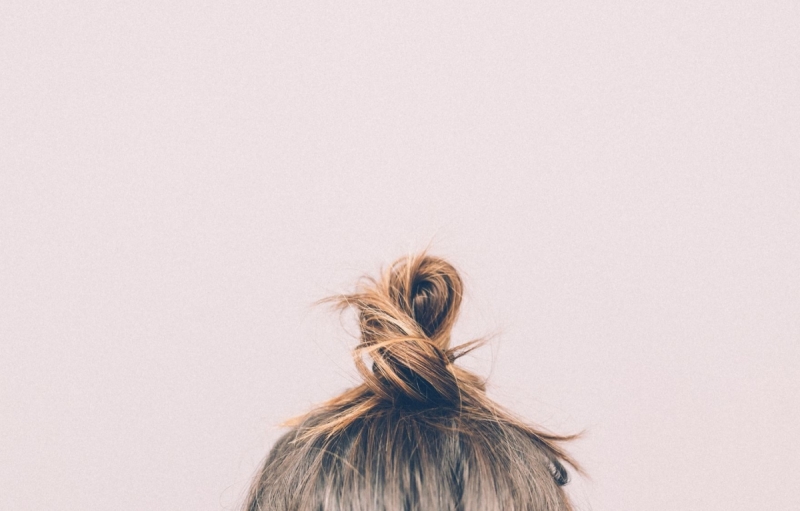
When it comes to hair, many tips and ideas are passed on overtime. However, not all of them are true or make sense regarding hair care. Therefore, today we are going to demystify some of the most typical myths in this theme!
Washing your hair every day can rot the hair roots and cause hair loss
MYTH! When we wash our hair, water does not penetrate our scalp, so there is no possibility of rotting the hair root. Even if we let our hair dry naturally or go to sleep with it wet, there is absolutely no chance of that happening. However, our hair already falls out naturally, following the hair renewal cycle. Usually, about 100 hairs fall out a day, and this can be noticed much more when washing, because we are touching the hair more actively and, many times, we take advantage of the shower to untangle it. Only hair that was already loose and programmed to fall out will fall out, regardless of the number of washes. However, consult a health professional in case of very intense hair loss (which can be caused by stress, hormones, diet, genetics).
But then is it recommended to wash your hair every day?
IT DEPENDS! This is one of those cases where there is no properly correct answer. There is no problem with washing your hair every day, but the frequency of washing should depend on a few factors, such as:
Hot water makes hair dull
TRUTH! High water temperature can dry out the scalp and, consequently, the hair shaft. It is in the scalp that the necessary hydration is produced to keep the hair strands shiny and healthy-looking. However, excessively hot water will reduce this hydration process and the hair will eventually become dull. In more serious situations, it can even lead to excessive stimulation of the sebaceous glands of the scalp (to counteract the loss of hydration), which will lead to greater production of oil, which can even cause a fall and lead to other hair pathologies, such as oily dandruff or sensitive scalp. So, the idea is to wash your hair with warm or cold water, even in winter. A good way to restore the hair's natural shine and to remind you of the need to wash it with cold water is to use a shine rinse at the end of the wash.
The hair gets used to shampoo/conditioner formulas when used frequently
MYTH! On the contrary, using the same products improves their effectiveness over time, as the results accumulate. However, there are some situations that cause the hair to change, and this is not necessarily related to the shampoo or conditioner used. Among these changes, the following can be highlighted:
We must use the dryer at a minimum distance of one hand from the hair
TRUTH! As explained above in relation to the use of hot water, using the dryer too close to the scalp and with the air jet being too hot will have similar effects. In this case, it is not only advisable to keep the distance of the dryer from the scalp and hair shaft but it is also recommended to use thermo-protective sprays.
Cutting ends frequently makes hair grow faster
MYTH! Hair strands are living structures, whose development takes place at the level of the scalp. However, the hair shaft is made up of dead cells. When we cut the ends or even make a more radical haircut, we are just cutting strands of hair that are already "dead", and which may be weakened or damaged. Cutting your hair periodically only gives the feeling that it is healthier because the parts that are no longer so beautiful are removed. It has no influence on its growth rate, thickness, or strength.
Anyone with a sensitive scalp should avoid applying any chemical products to their hair, including dye
TRUTH! On a sensitive scalp, irritation, discomfort, burning, and itching are constant. Many chemical procedures such as hair straightening or coloring can aggravate the condition of the sensitive scalp. Thus, it is not only necessary to adapt the products used regularly for washing the hair, but it is also necessary to opt for more natural solutions in coloring or the use of protective oils for the scalp.
Capillary repair is the same as capillary hydration
MYTH! These two terms are often used interchangeably, but the reality is that they have quite different meanings. Hydration means keeping water in the hair shaft, while the repair is related to the replenishment of nutrients in the hair. The choice of a hydrating mask or a restorative mask will always depend on specific factors, such as the type of hair or the damage caused.
A hair mask or conditioner should not be used on the hair root
TRUTH! As mentioned above, it is at the level of the scalp that the natural hydration of the hair strands is produced. Thus, the scalp area and the upper part of the hair shaft do not need to benefit from the effects of a mask or conditioner. On the contrary, the use of a mask or conditioner in the scalp area can even be harmful, leading to greater production of sebum and less voluminous hair, due to the weight caused by the use of these products in that area.
I hope I was able to clear up some doubts. In case you know more myths or if you are unsure of some information, please share with us, and we will help to clarify any questions that may exist!
Thank you very much and see you in the next tip!
Sara Moreira Ferreira